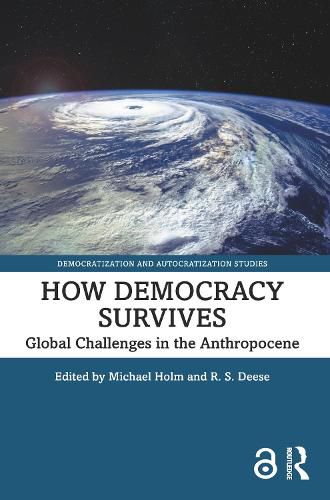Readings Newsletter
Become a Readings Member to make your shopping experience even easier.
Sign in or sign up for free!
You’re not far away from qualifying for FREE standard shipping within Australia
You’ve qualified for FREE standard shipping within Australia
The cart is loading…






How Democracy Survives explores how liberal democracy can better adapt to the planetary challenges of our time by evolving beyond the Westphalian paradigm of the nation state.
The authors bring perspectives from Africa, Asia, Europe, Latin America, and North America, their chapters engaging with the concept of transnational democracy by tracing its development in the past, assessing its performance in the present, and considering its potential for survival in this century and beyond. Coming from a wide array of intellectual disciplines and policymaking backgrounds, the authors share a common conviction that our global institutions-both governments and international organizations-must become more resilient, transparent, and democratically accountable in order to address the cascading political, economic, and social crises of this new epoch, such as climate change, mass migration, more frequent and severe natural disasters, and resurgent authoritarianism.
This book will be relevant for courses in international relations and political science, environmental politics, and the preservation of democracy and federalism around the world.
$9.00 standard shipping within Australia
FREE standard shipping within Australia for orders over $100.00
Express & International shipping calculated at checkout
How Democracy Survives explores how liberal democracy can better adapt to the planetary challenges of our time by evolving beyond the Westphalian paradigm of the nation state.
The authors bring perspectives from Africa, Asia, Europe, Latin America, and North America, their chapters engaging with the concept of transnational democracy by tracing its development in the past, assessing its performance in the present, and considering its potential for survival in this century and beyond. Coming from a wide array of intellectual disciplines and policymaking backgrounds, the authors share a common conviction that our global institutions-both governments and international organizations-must become more resilient, transparent, and democratically accountable in order to address the cascading political, economic, and social crises of this new epoch, such as climate change, mass migration, more frequent and severe natural disasters, and resurgent authoritarianism.
This book will be relevant for courses in international relations and political science, environmental politics, and the preservation of democracy and federalism around the world.